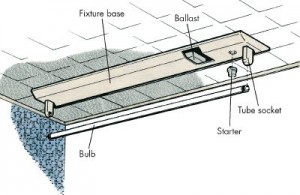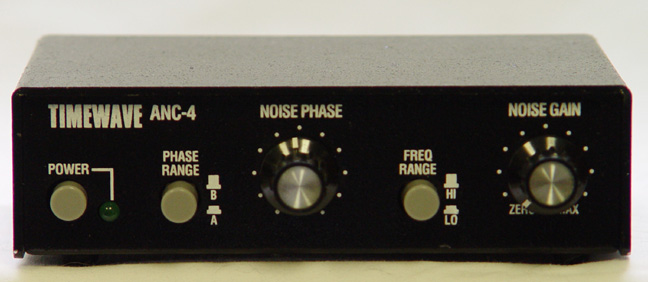
Poorly engineered fluorescent ballasts are often culprits of broad spectrum radio interference. (Image: HowStuffWorks.com)
I’m happy to see RFI being mentioned in the Wall Street Journal.
Many thanks to SWLing Post reader, Ulis, for the tip:
(Source: Wall Street Journal)
A federal agent who shows up unannounced at a building along a Texas highway might be looking for any number of things: illicit drugs or immigration violations, say, or illegal firearms.
Or fluorescent lights.
Which was what the agent had in mind who walked into the Perfect Cuts salon in San Antonio last July. The lights were violating communications regulations.
The agent had used signal-tracking equipment to home in on the offenders and told the owner, Ronald Bethany, that his lights emitted radio signals that interfered with an AT&T cellphone tower.
[…]The mixed signals aren’t always so weighty. In recent years, the FCC has issued warning letters directing people to stop operating cordless phones, television sets and wireless cameras.
[…]The FCC can demand fines up to $16,000 a day or $112,500 an incident from people who aren’t FCC licensees. Offenders usually rectify problems, the FCC says, often working them out with whomever is complaining.
Managing the radio spectrum “has been part of our core mission since the inception of the FCC in 1934,” says Julius Knapp, head of the agency’s Office of Engineering and Technology.
[…]The government doesn’t much care why interference happens. To the FCC, noise is noise.
In a 2013 letter, the FCC wrote to the owner of a plasma TV set after a ham-radio operator complained to the agency of interference. “Continued operation of the television,” warned the letter, from which the TV owner’s identification is redacted, “is not legal under FCC rules.”
[…]Ham-radio operators are a frequent source of complaints. A 2012 FCC letter told a Pomona Park, Fla., resident to stop using a well pump that conflicted with amateur-radio frequencies.
[…]Radio hobbyist Tom Thompson of Boulder, Colo., last year tracked a signal using a homemade contraption. After knocking on the suspect’s door, he traced it to ballasts on marijuana grow-room lights. He says he built a filter that the grower agreed to use.
Ballasts are frequent offenders. Makers of the components, which regulate electricity to bulbs, test them for FCC compliance. Some interfere anyway.[…]
Read the full article on the Wall Street Journal online.


